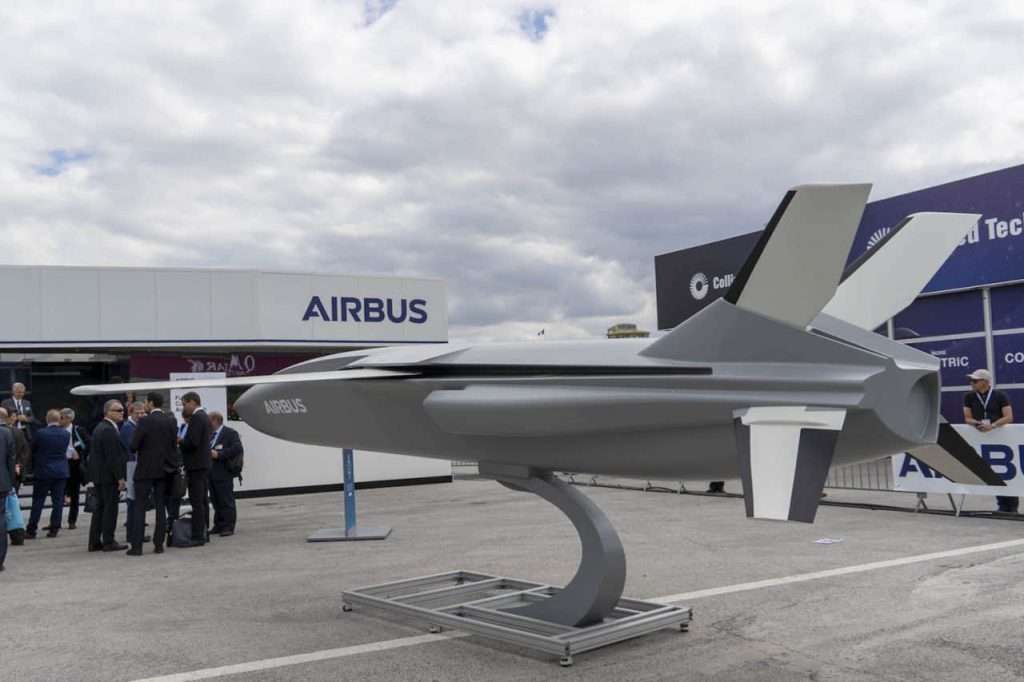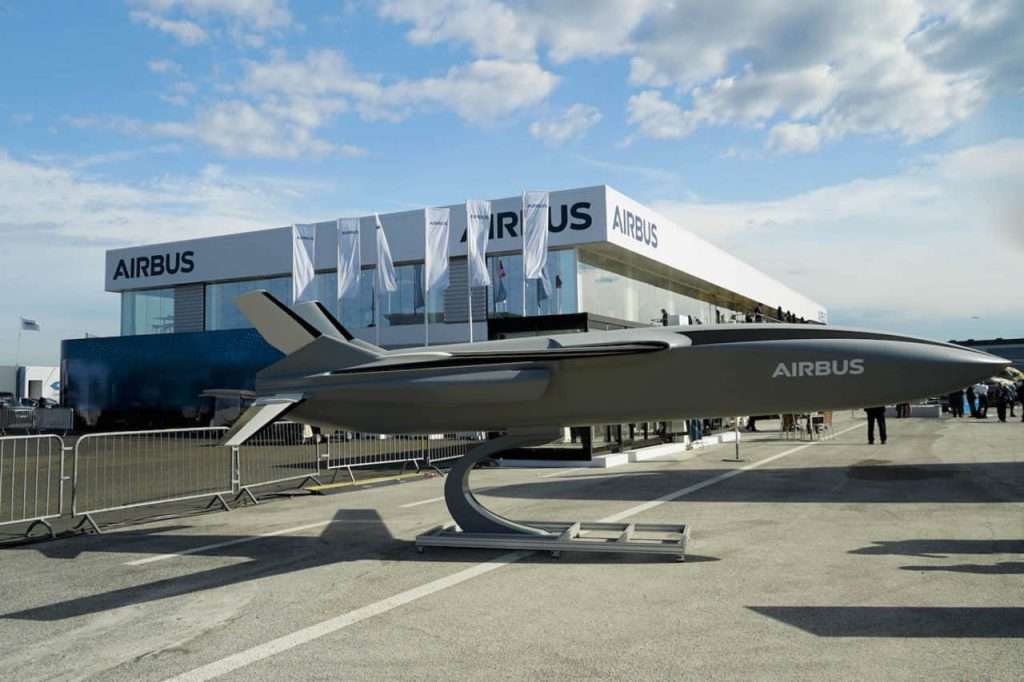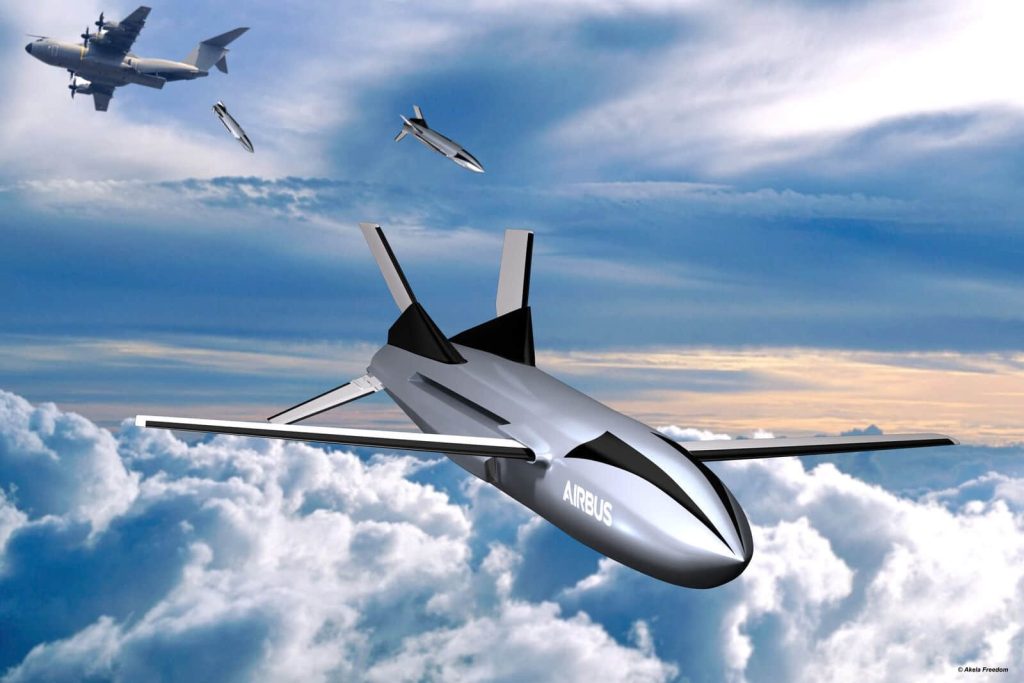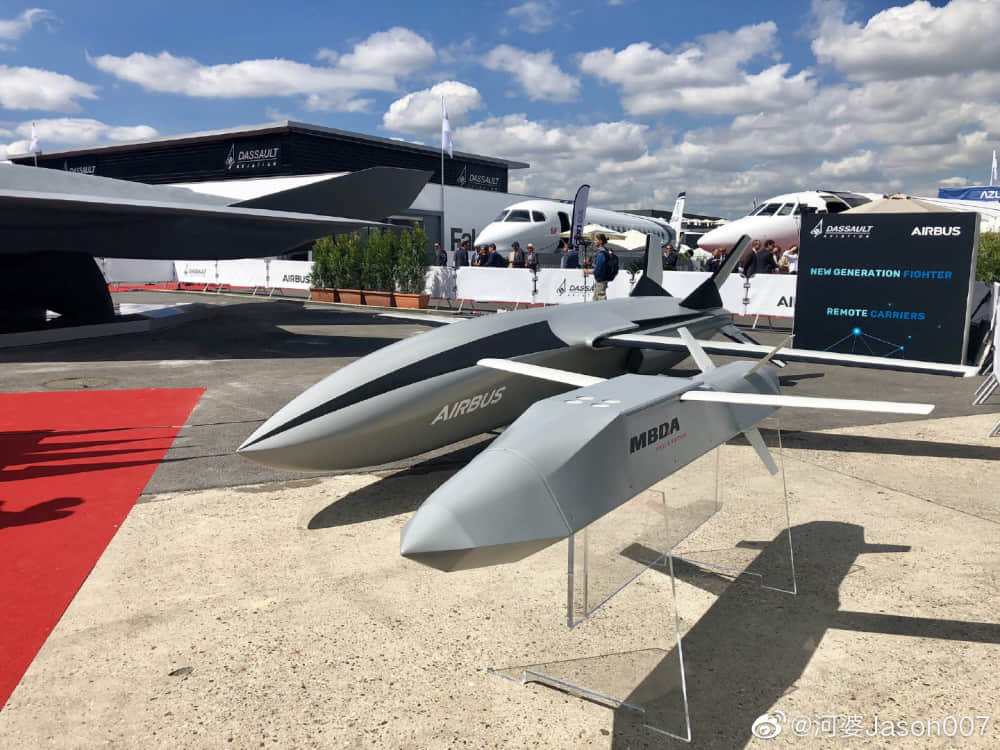Airbus Uses AI to Shape the Future with the FCAS Flight Control System”
Within the constantly changing field of aviation technology, Airbus has become a leader in pushing the frontiers of innovation to unprecedented levels. The Future Combat Air System (FCAS) flight control system, a ground-breaking invention that uses artificial intelligence (AI) to revolutionize aircraft control and operation, is at the vanguard of its most recent technical miracle. This paper explores the integration of AI into the FCAS and its far-reaching ramifications for the aviation industry, delving deeply into the nuances of Airbus‘ innovative approach.
The Origins of FCAS:

The FCAS project was designed as a cooperative endeavor amongst European countries to create a combat aviation system for the next generation. However, Airbus made a risky move by investing a lot of money into artificial intelligence (AI) and improving the aircraft’s mechanical features. The aviation industry is seeing a paradigm change as smarter, more adaptable technology replaces outdated systems, which is shown by AI’s incorporation in FCAS.
Flight Control System Powered by AI:

An AI-powered flight control system, which surpasses traditional automated systems, is the brains behind the FCAS. Airbus realized that to guarantee the best possible performance and safety, a system that could adjust to changing and unforeseen circumstances in real time was required. The FCAS AI component is intended to mimic a human pilot’s cognitive processes with the speed and accuracy that only artificial intelligence can offer by constantly learning and improving.
Using Algorithms for Machine Learning:

Robust machine learning algorithms that examine large datasets with a wide range of flight situations form the foundation of Airbus’ AI integration. FCAS can identify trends, foresee any problems, and modify its control tactics as necessary thanks to these algorithms. To maximize performance, the system continuously improves its comprehension of the behavior of the aircraft and external variables. It is therefore both proactive and reactive.
Flexible Independence for Improved Situational Intelligence:

The FCAS AI’s adaptive autonomy, which enables the system to switch between manual, semi-autonomous, and completely autonomous modes with ease, is one of its primary characteristics. This flexibility changes the game in situations where quick judgments are essential. Pilots may concentrate on making strategic and high-level decisions by delegating ordinary chores to the AI. Better situational awareness and more effective utilization of human cognitive resources are the outcomes.
Working Together and Ethical Issues:
In addition to being a technological achievement, the creation of FCAS provides evidence of global cooperation. To guarantee that the system satisfies the highest standards of safety and dependability, Airbus has collaborated extensively with specialists from a variety of sectors, including aircraft engineers, military strategists, and AI researchers. Furthermore, the development process has placed a strong emphasis on ethical issues including responsibility, transparency, and preventing bias in AI decision-making.
Prospective Consequences and Industry Effect:
The aircraft industry will be greatly impacted by Airbus’s continued development and application of the FCAS flight control system. An example of the wider use of AI in commercial aviation is established by the combat aircraft’s effective integration of the technology. The effectiveness, security, and versatility exhibited by FCAS may open the door for artificial intelligence (AI)- -enhanced flight control systems in passenger planes, revolutionizing air travel.
In summary:
An important turning point in the aviation sector was reached when Airbus used AI to construct the FCAS flight control system. Modern technology combined with an innovative mindset has produced a system that not only fulfills the requirements of contemporary air warfare but also establishes the foundation for aviation’s future. AI will probably become more widely integrated into flight control systems as it develops, ushering in a new era of safer, more effective, and adaptable air transport. The FCAS project is proof of the limitless opportunities that result from the combination of artificial intelligence and human creativity in the pursuit of innovation.








